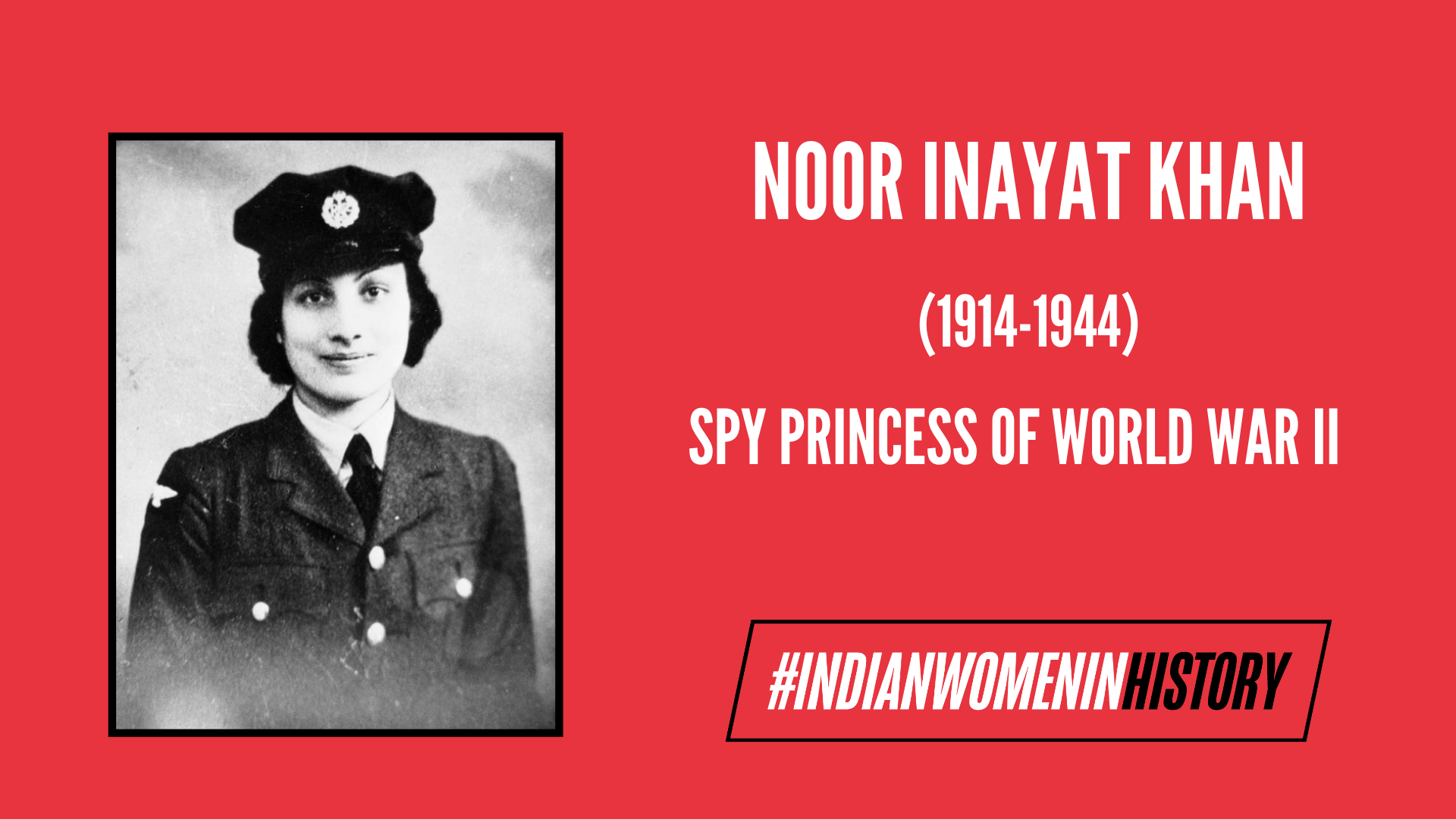Noor Inayat Khan was an Indian spy and the only female radio operator to be sent to Nazi-occupied France in WWII. It is remarkable how Noor, who was raised on the principles of religious tolerance, and non-violence decided to take up the most dangerous mission that lead to her daring career. A tigress on the field, this lady remains an inspiration for generations.
Early Life and education
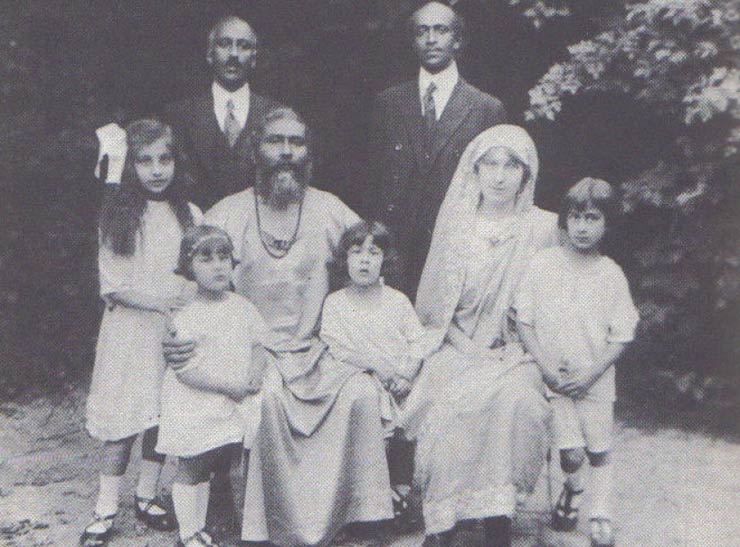
Image Credit: Mens XP
The war heroine was born on 2nd January 1914 in Moscow to an Indian father, Hazrat Inayat Khan and an American mother. She is the great-great-great granddaughter of Tipu Sultan, the eighteenth- century Muslim ruler. Her father was a Sufi Muslim who founded the Mystical Sufi Order of the West.
Inayat’s father decided to spread his peaceful and non-dogmatic faith through music. She grew up in the suburbs of Paris in a loving house called ‘Fazal Manzil’. Even today, a military band plays outside her house on Bastille Day to honour her for the French Resistance.
She studied music at the Paris Conservatory and Child Psychology at Sorbonne. At 25, she wrote the book ‘Twenty Jataka Tales’ which is drawn from the famous legends of the former life of the Buddha in 1939. Most remember her as a kind, dreamy and sensitive girl.
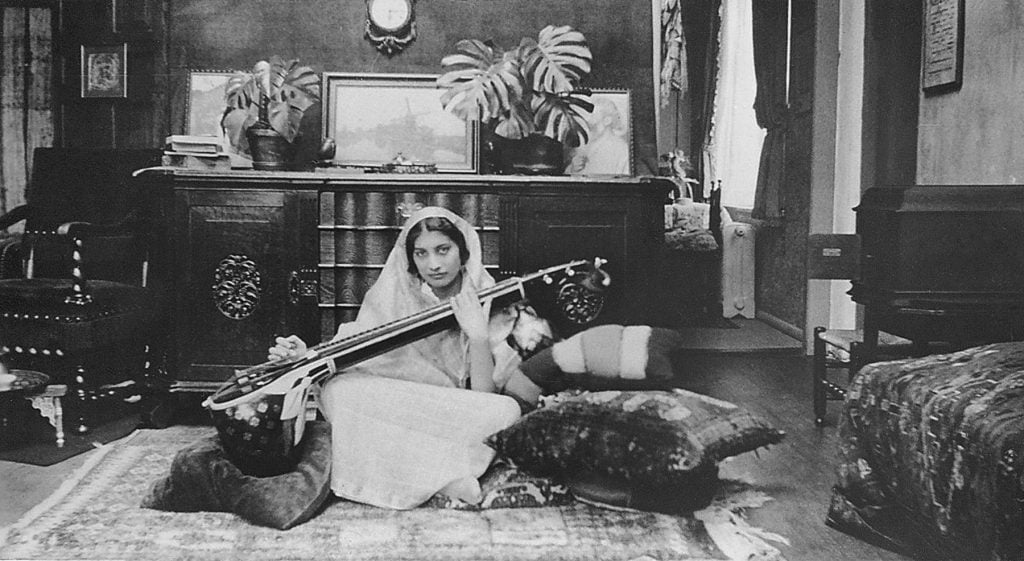
Image Credit: Better India
She was the eldest of the four children. She was forced to grow up and become a leader when she suddenly lost her father during his visit to India in 1927. As for her personal life, it is said that she was engaged to a pianist of Jewish origin and later had an engagement with a fellow British officer.
Countering Nazi aggression
After Germany invaded France in 1940, Khan and her brother Vilayet decided to face Nazi aggression. Vilayet told Shrabani Basu (author of the biography Spy Princess: The life of Noor Inayat Khan) that the brother-sister duo pledged “to thwart the aggression of the tyrant”. They took a flight from Paris to Bordeaux and then undertook a seaborne journey in a boat to England.
There, Inayat joined the Women’s Auxiliary Air Force (WAAA) and was later recruited by Winston Churchill’s secret force, Special Operation Executive (SOE). She was the first female radio operator who was sent to Nazi-occupied France in World War II with the codename ‘Madeline’. Most lasted only six weeks for this job. The report accounted her as ‘unsuitable to work in her field’.
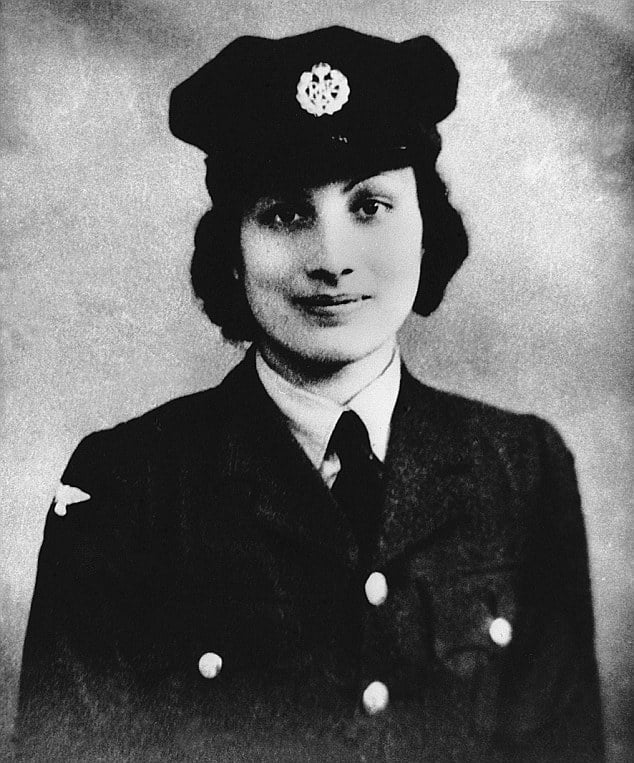
Image Credit: Daily Mail
There was a mass arrest by the Gestapo (German states secret police during the Nazi regime) who completely destroyed the SOE’s spy network back in Paris. She was ordered to go back home but she decided not to leave the job. This was because she did not want to leave her fellow commanders without any communication.
Also Read: 5 Women Warriors We Should Know About | #IndianWomenInHistory
The job was described by General Sir Colin Gubbins as the principal and most dangerous post in France. She lasted for 3 and a half months for this job by changing appearances and allies. Being the only undercover agent left, she was single-handedly sending messages back to London.
Capture and execution
But as fate would have it, she was betrayed by Renne Garry, the sister of one of the colleagues. It took six men to hold her down while she was being arrested. Later, she was imprisoned in Pforzheim prison in Germany. For almost ten months, she did not reveal any details despite being starved, beaten and tortured by the Nazis.
Later, due to her courage and two escape attempts, she was labelled as ‘dangerous’. As a result of which, she was sent to the Dachau concentration camp. There she was shot dead on 13 September 1944, at the age of 30. The spy heroine’s last words were ‘liberte’ which she screamed at the Nazi shooting squad.
Legacy and in memoriam
She was posthumously awarded the George Cross (the highest gallantry award alongside Victoria Cross). Later, she was honoured with a Croix de Guerre with a silver star in France along with two memorials and a ceremony. In 2006, Shrabani Basu wrote an autobiography called Spy Princess: The Life of Noor Inayat Khan and is also the founder of the Noor Inayat Khan Memorial Trust.
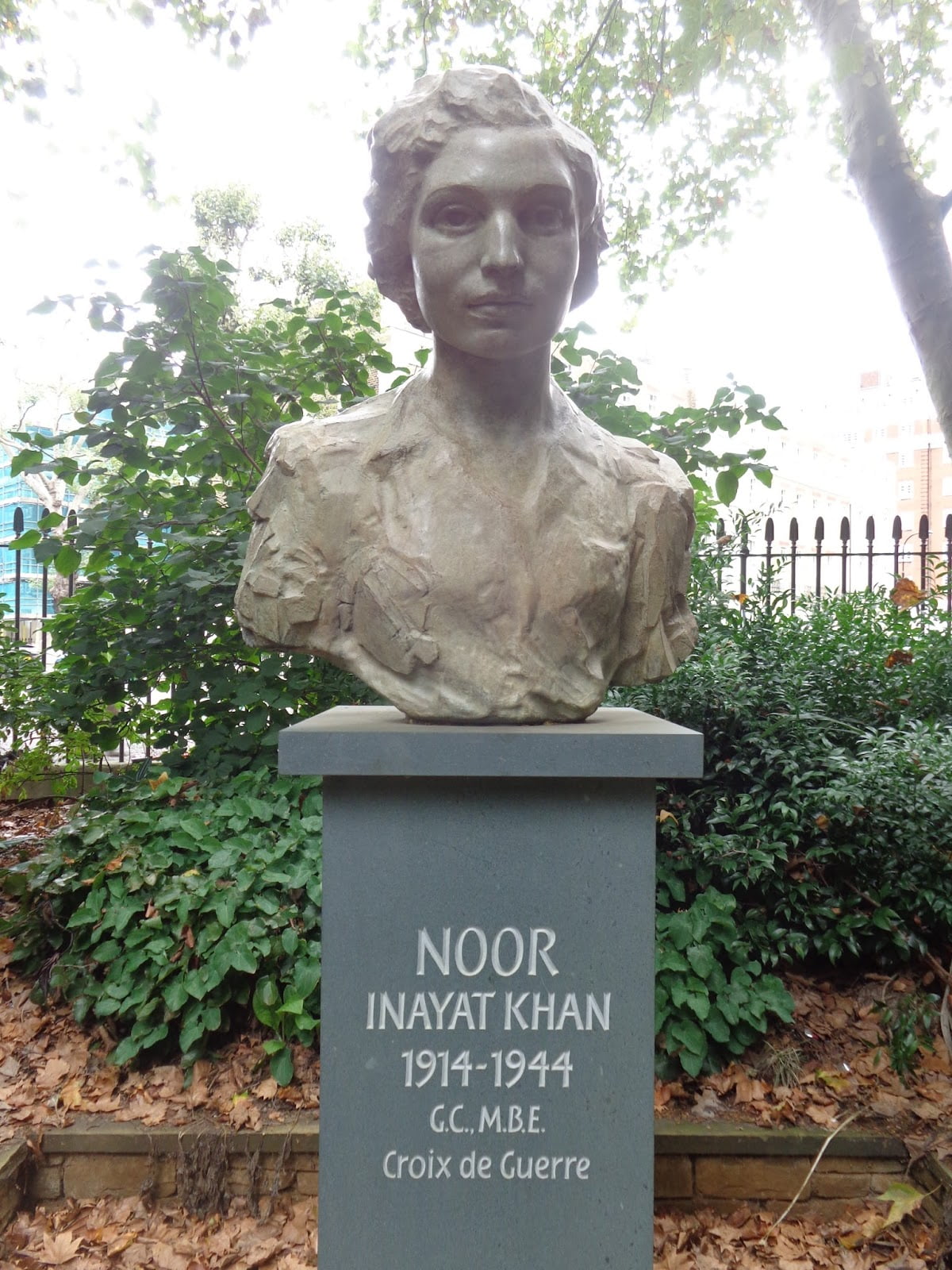
Image Credit: Patheos
Basu, who spend eight years researching her life described her as a “Sufi who believed in non-violence and religious harmony and had yet volunteered to be on the frontline”. There is a memorial of hers at the Gordon Square, London. Her memorial was the first stand-alone memorial dedicated to an Asian Women in the UK. It is being established to her remarkable life and sacrifice.
Noor was an incredibly brave woman who died fighting for her country. This memorial was made so that she does not fade away from our memory. Stacy Erickson wrote a poem called ‘resistance’ and dedicated it to Noor on 6th September 2010. Noor’s life was full of courage and an admirable vision – which makes it inspirational for generations.
Maurice Buckmaster, a former colonel of Noor, said that “no one had mentioned Noor’s extraordinary beauty”. From her fellow commanders at SOE to the governor of Pforzheim Jail she left everyone moved. She decided her own journey, without any obligation from family, friends, traditions, or country.
It was her decision to risk becoming a spy when most said she was unfit; stayed back in Paris when her fellow commanders asked her to leave for home and fought with the Nazi’s with invincible courage. This was not it. When arrested, she tried to make two escape attempts to fight even further. Noor Inayat Khan remains the epitome of invincible courage and determination.
Also Read: Matangini Hazra And Her Sacrifice For India’s Freedom |#IndianWomenInHistory
Featured Image Credit: India Today
About the author(s)
Sahima Gupta is a second-year student, majoring in Political Science. She is a bibliophile who has a keen interest in history, travel, and photography.
